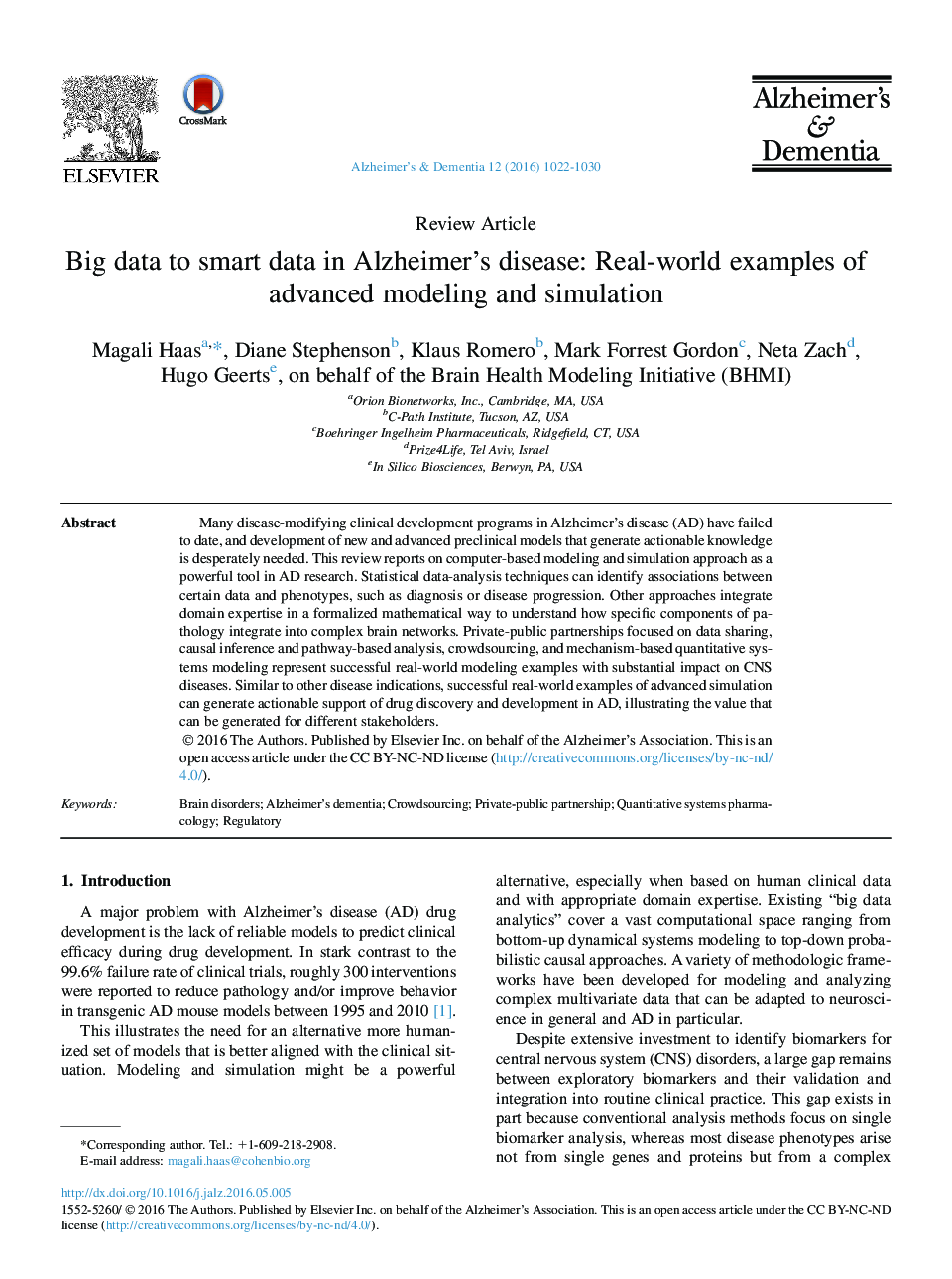| Article ID | Journal | Published Year | Pages | File Type |
|---|---|---|---|---|
| 5623896 | Alzheimer's & Dementia | 2016 | 9 Pages |
Many disease-modifying clinical development programs in Alzheimer's disease (AD) have failed to date, and development of new and advanced preclinical models that generate actionable knowledge is desperately needed. This review reports on computer-based modeling and simulation approach as a powerful tool in AD research. Statistical data-analysis techniques can identify associations between certain data and phenotypes, such as diagnosis or disease progression. Other approaches integrate domain expertise in a formalized mathematical way to understand how specific components of pathology integrate into complex brain networks. Private-public partnerships focused on data sharing, causal inference and pathway-based analysis, crowdsourcing, and mechanism-based quantitative systems modeling represent successful real-world modeling examples with substantial impact on CNS diseases. Similar to other disease indications, successful real-world examples of advanced simulation can generate actionable support of drug discovery and development in AD, illustrating the value that can be generated for different stakeholders.
